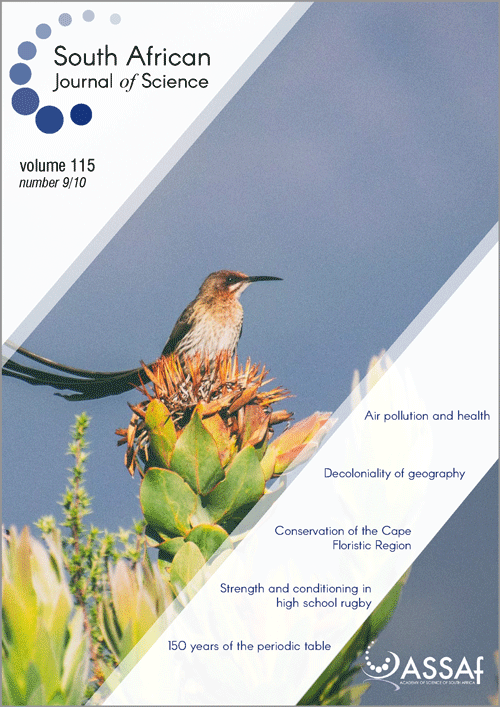Strength and conditioning practices of high school rugby coaches: A South African context
DOI:
https://doi.org/10.17159/sajs.2019/5837Keywords:
training, sport, surveyAbstract
Although rugby union as a sport is well established, the strength and conditioning practices of high school level players are not well known. Therefore, the main purpose of this study was to examine the current strength and conditioning practices that coaches implement at South African high school level rugby. A secondary purpose was to compare practices between high schools of different socio-economic status in South Africa. An online survey or in person interview (depending on the school) was conducted and 43 responses were received: from 28 coaches at schools among the top 100 rugby schools in South Africa for 2016 and from 15 coaches at no-fee public schools in the Eastern Cape Province of South Africa. Most coaches (72%) performed some form of physical testing, with the most common parameter tested being ‘speed’. The most common strength and conditioning practices utilised included flexibility (stretching), speed (free sprinting), agility (cone drills), plyometric (box drills) and resistance (weight lifting) training. Unlike the no-fee schools, the top 100 rugby schools implemented conditioning practices similar to best-known international practices. Furthermore, no-fee school coaches did not have the qualifications necessary to administer the correct training techniques. Education and upskilling on the best strength and conditioning practices for school level coaches need to be improved, particularly in less privileged schools. Such improvement is crucial to the transformation goals set out by the South African Rugby Union, which would benefit from player development in lower socio-economic schools.
Significance:
- The top 100 rugby playing schools in the country implement similar strength and conditioning practices to the best known international practices.
- Education of coaches is key to the implementation of correct strength and conditioning practices, specifically at underprivileged schools.
Downloads
Published
Issue
Section
License

All articles are published under a Creative Commons Attribution 4.0 International Licence
Copyright is retained by the authors. Readers are welcome to reproduce, share and adapt the content without permission provided the source is attributed.
Disclaimer: The publisher and editors accept no responsibility for statements made by the authors
How to Cite
- Abstract 1291
- PDF 1321
- EPUB 250
- XML 410
- Supplementary Material 230












.png)